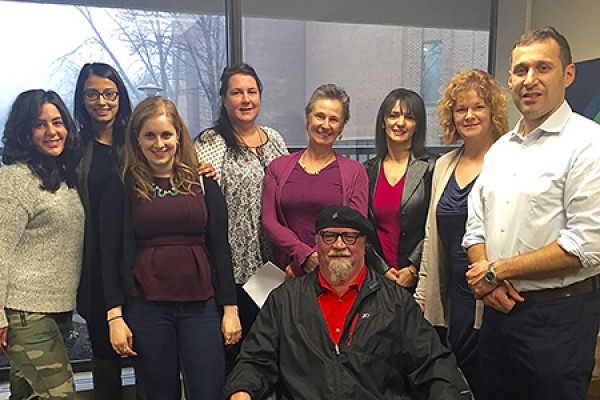 Professors Rupp Carriveau and David Ting will receive $112,000 to refine an underwater compressed air energy storage and conversion system.
Professors Rupp Carriveau and David Ting will receive $112,000 to refine an underwater compressed air energy storage and conversion system.
UWindsor researchers have played a critical role in developing Canada’s first underwater compressed air energy storage and conversion system and now, with the help of a federal grant, they hope to further improve the system’s design and efficiency.
The $112,000 grant comes as part of a $5 million federal investment in the NSERC Energy Storage Network announced March 1 by Minister of Science Kirsty Duncan. The project is part of an overall effort between 27 professors from 15 universities and eight provinces aimed at creating a more reliable, environmentally responsible and efficient power system.
“This support represents a big investment in connecting our country’s talented scientists and engineers with industry,” Duncan said.
UWindsor engineering professors Rupp Carriveau and David Ting will use their portion to implement the Next Generation Under Water Energy Storage project, which will fund the team’s efforts to push new designs that will decrease mobilization and deployment costs, which are traditionally high with offshore energy projects.
Drs. Carriveau and Ting are working with industry partners Hydrostor and Toronto Hydro, which currently operate the only grid-connected underwater energy storage facility in the world. The Hydrostor system includes underwater air storage located 2.5 km offshore in Lake Ontario, as well as a mechanical facility located on Toronto Island.
“Our focus is to increase operating efficiency to bring the cost of energy storage down, further increasing the appeal for customers,” Carriveau said about the Hydrostor system, which uses compressed air and the weight of water to run its system with minimal emissions. “The sustainable energy offshore sector is growing rapidly. Energy storage is critical to a sustainable energy future.”
The system stores electricity during off-peak hours when demand is low and electricity is cheapest. The stored electricity is returned during times of high demand or during short-term power outages.
This is accomplished by running electricity to power an air compressor. The energy now takes the form of compressed air, which is sent underwater and stored in large balloon-like structures. When electricity is needed again, the pressure of the water pushes the air to the surface, driving a generator to create electricity.

